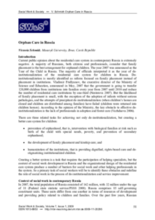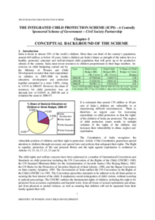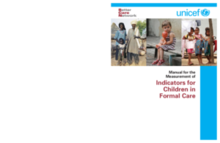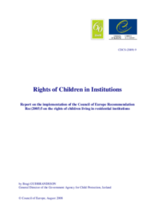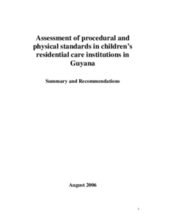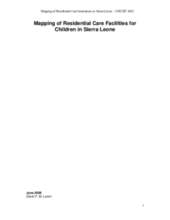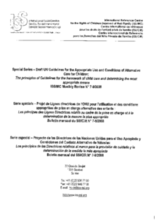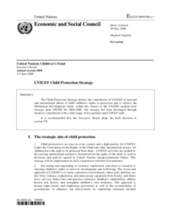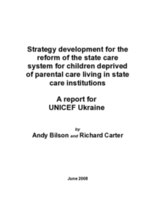Displaying 571 - 580 of 691
Current public opinion about the residential care system in contemporary Russia is extremely negative. A majority of Russians, both citizens and professionals, consider that family placement is the best arrangement for orphaned children.
In 2006 the Indian Ministry of Women and Child Development proposed the adoption of an Integrated Child Protection Scheme (ICPS), which was adopted and launched by the central government in 2009-2010. Recognizing chronic under funding of child protection services in the country and major gaps in the system, the ICPS was expected to significantly contribute to the realization of Government/State responsibility by creating a system that would effectively and efficiently protect children.
Manual to assist countries in strengthening their information system around children in formal care through data collection around 15 global indicators
This report provides an assessment of the current situation with regards to rights of children in institutions in 42 Council of Europe member states.
Examines the capacity of childcare institutions and the monitoring and reintegration meausures necessary to ensure child safety in such.
Evaluates the need for reform within Nepal's intercountry adoption programming and the broader needs within the child protection and alternative care arenas nationally.
Mapping of existing facilities caring for children in residential capacity for use in developing child protection standards
Evaluates country level implementation of principles set forth in Guidelines.
Outlines the contributions of UNICEF to national and international efforts to fulfill children’s right to protection.
This report written for UNICEF identifies the key elements for a strategy to take forward the Government of Ukraine’s programme for the reform of child welfare.

